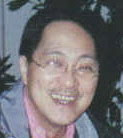GOTCHA, Published in The Philippine Star, Friday, January 25, 2008
Congressmen will die of envy when they find out that the P200,000-Christmas bonus they awarded themselves is peanuts. The president of a government financial institution paid himself, his board directors and senior officers P2 million to P10 million each in loyalty bonus. The amount depended on how close they were to him.
A newcomer who has been there three years so has yet to prove his worth got a whopping P4 million just for being a yes man. Old-timers are too scared to talk, but murmur that the GFI might go bankrupt by the time the presidential appointees step down in 2010. To think that its funds are supposed to be used for the development of the
* * *
Economist Hernando
Bureaucratic reforms have since been laid down. A code of conduct for public servants requires prompt, greaseless action on citizens’ requests. An anti-red tape law further sets the number of days within which agencies must act. Departments have instituted efficiency checks.
Still some government offices habitually drag their feet. The Dept. of Transportation and Communication’s refusal to issue its contract with ZTE Corp. was later understood as cover-up to overpricing. What could be the reason for decision delays at the National Telecommunications Commission?
One year is usual for the NTC to grant a permit or render a verdict. It took that long for VoIP to be approved as a new phone platform in 2006 — when Filipinos already were into Skype, Yahoo Messenger and GoogleTalk. Another case has been crawling far longer: whether foreign suppliers of local telcos should be treated as public utility operators and so subject to the Constitution’s rule for 60-percent Filipino ownership.
A case was filed in mid-2006 against Spanish content provider Zed for supposed breach of foreign investments laws. The company is a world leader in value-added services, like ring tones and wallpapers, as well as multimedia messaging. Zed then had just concluded a successful five-year venture with mobile service provider Smart when its ownership makeup was questioned. The issue affects other foreign investors like Chikka and Information Gateway Inc. that provide content to local telcos.
Zed holds that since it merely supplies products and services to local telcos, it is not itself a public utility subject to the 60:40 rule. It’s no different from Nokia or Samsung providing phones for promos of Smart, Globe or Sun. The latter three are telcos that must be majority Filipino owned; the first two are merely foreign suppliers and so are not required to be Filipino. Zed does not deal directly with mobile customers. It had dabbled for a while in push messaging, like local telcos and other content providers, but has since withdrawn with the issuance of NTC rules against spam. Its P370-million revenue in 2006 derived only from services to telcos. Value-added service firms pay Philippine taxes, hire Filipino talents, rent Filipino office space, buy Filipino products, and support Philippine industries.
Still, if the NTC rules that Zed must open up to Filipino ownership, the Spanish firm might comply, depending on word from
* * *
Are there no more nominees of integrity that civil society must keep batting for retired Supreme Court justice Jose Melo as Comelec chairman? Melo is 75, and the Comelec chief’s term is all of seven years. He would be 82 by the time he steps down from work that, given the depth to which the poll body has sunk, can sap even a young man’s energies.
Nominators say they consider not only integrity but capability as well. If so, they need to check not Melo’s proven leadership skills but physical endurance for a backbreaking job, given his age.
Melo has had a distinguished career as jurist and public servant. He is the type who would never say no when asked to serve the country. But at 75, Filipinos owe it to him to let him enjoy retirement with his family.


